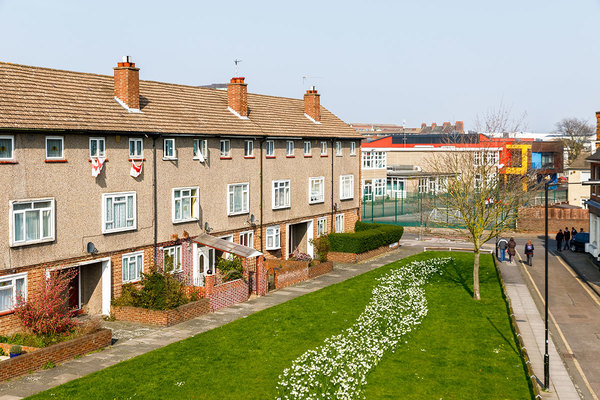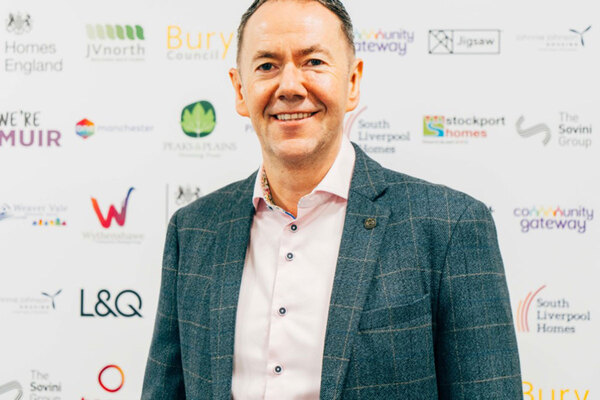You are viewing 1 of your 1 free articles
Four in five social housing tenants on Universal Credit struggle to pay for essentials
Four out of five social housing residents (79%) claiming Universal Credit have struggled to pay for at least one essential item such as heating, council tax or clothes, a survey has found.
Nearly half (43%) have struggled to afford food, according to the National Housing Federation (NHF) study, which it claims is the largest of its kind to date.
The body estimated that nearly 500,000 Universal Credit households in social housing in England could be struggling to pay for food.
More than 3,500 tenants from eight housing associations were asked about their experience of Universal Credit.
As well as reporting difficulties meeting basic living costs, 84% of respondents said they had borrowed money from friends and family, applied for loans or visited food banks while claiming the benefit.
New physical or mental conditions after beginning to claim Universal Credit or the worsening of an existing condition were reported by 48% of those surveyed, with many referencing anxiety.
In a report published today, the NHF said its findings show that many people on Universal Credit do not have enough money to live on, even with the £20-a-week boost that has been put in place during the coronavirus pandemic. The uplift is due to end on 30 September.
The trade body is calling on the government not to cut the uplift, to end the five-week wait for the first Universal Credit payment and to increase funding for training and employment support to help people back into work.
The NHF’s analysis indicated that when the survey was carried out in spring 2021 a single person aged over 25 on Universal Credit would get £411.51 a month to live on – dropping to £324.84 in October if the cut goes ahead.
There are now just over a million social rented households in England claiming the housing element of Universal Credit, a figure that grew 46% between March 2020 and February 2021.
Kate Henderson, chief executive of the NHF, said: “We must listen to what residents are telling us.
“Our report shows that people on Universal Credit are struggling to pay for food to feed their families, essentials like clothes and fuel to heat their homes.
“Many are relying on debt, which they cannot afford to pay back, just to make ends meet. This is affecting people’s mental and physical health.
“It was hugely positive that government took decisive action when the pandemic hit to support residents, and it is clear from these findings that this support needs to continue.
“At its core, our country’s welfare system must ensure that people have enough money to live on.”
As highlighted in previous studies, the NHF said some residents reported falling into debt during the five-week wait for their first payment and being unable to recover.
Advance payments are available during the five-week period and must be paid back over a 24-month period.
Others praised Universal Credit for helping them through a difficult time during the COVID-19 pandemic.
One respondent said they were skipping meals so their children could eat, while another said the benefit “took me from a homeless mentally ill man living in a garage to a tenant being treated and recovering”.
Of those surveyed, 53% agreed that Universal Credit is an adequate safety net – but 83% said they run out of money before the end of the month at least some of the time.
Overall “there was a very mixed experience”, the report said.
More respondents were happy with the overall service than in a similar previous study by the NHF, but there were still some rare cases where people said poor experiences left them feeling suicidal.
The report said housing associations can do more to advertise the support services they offer, with 38% of survey respondents saying they had not spoken to their landlord about Universal Credit.
It added that housing associations could also “take more supportive approaches to income collection to reduce anxiety and help claimants to manage their finances”.
Wythenshawe Community Housing Group, Vivid, L&Q, Accent, ForHousing, Abri, South Lakes and Curo took part in the survey.
A spokesperson for the Department for Work and Pensions said: “Universal Credit provides a safety net while helping claimants to move back into work or increase their hours, and is supported by our multibillion-pound Plan for Jobs.
“Customers that need further financial support can request urgent payments and can also be signposted to debt charities for more help and advice.”
Sign up for our tenancy management newsletter
Already have an account? Click here to manage your newsletters












